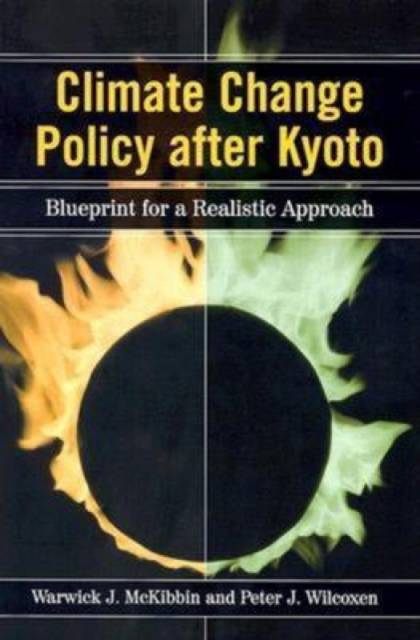
- Afhalen na 1 uur in een winkel met voorraad
- Gratis thuislevering in België vanaf € 30
- Ruim aanbod met 7 miljoen producten
- Afhalen na 1 uur in een winkel met voorraad
- Gratis thuislevering in België vanaf € 30
- Ruim aanbod met 7 miljoen producten
Zoeken
Climate Change Policy After Kyoto
Blueprint for a Realistic Approach
Warwick J McKibbin, Peter J Wilcoxen
Paperback | Engels
€ 50,95
+ 101 punten
Uitvoering
Omschrijving
The Kyoto Protocol represents nearly a decade of international effort to reduce carbon emissions. While the treaty is the product of enormous international political effort, it has not been ratified by any major greenhouse emitter and it has been rejected by the United States. In this controversial new book, Warwick J. McKibbin and Peter Wilcoxen argue that the current approach of international negotiations on the Kyoto Protocol is going completely in the wrong direction. In Climate Change Policy after Kyoto, they attempt to steer the policy debate toward a realistic blueprint for effective policy. The authors believe that managing uncertainty--particularly the future costs of any plan--is key to realistic climate policy. They maintain that sustainable policy should meet four basic criteria: it should slow down carbon dioxide emissions where it is cost-effective to do so; compensate those who are hurt economically; require a high degree of consensus both domestically and internationally; and allow countries to enter the program easily and continue to participate even if they drop out of the agreement at certain times. The book summarizes the current state of knowledge about climate change and discusses the history of negotiations since 1992--in the process identifying the Kyoto Protocol as the wrong approach to the problem. It outlines important insights that economic theory offers for the design of climate policy, and uses those insights to develop a simple framework that will reduce greenhouse gas emissions while guaranteeing that short-run costs of compliance will not be excessive. The authors conclude by outlining a process by which international negotiations on climate control can proceed to an agreement that is both durable and feasible for all nations.
Specificaties
Betrokkenen
- Auteur(s):
- Uitgeverij:
Inhoud
- Aantal bladzijden:
- 133
- Taal:
- Engels
Eigenschappen
- Productcode (EAN):
- 9780815706076
- Verschijningsdatum:
- 16/12/2002
- Uitvoering:
- Paperback
- Formaat:
- Trade paperback (VS)
- Afmetingen:
- 154 mm x 233 mm
- Gewicht:
- 213 g

Alleen bij Standaard Boekhandel
+ 101 punten op je klantenkaart van Standaard Boekhandel
Beoordelingen
We publiceren alleen reviews die voldoen aan de voorwaarden voor reviews. Bekijk onze voorwaarden voor reviews.







